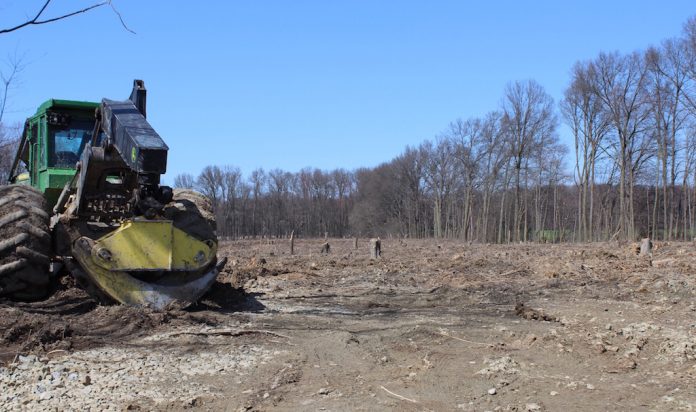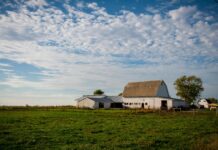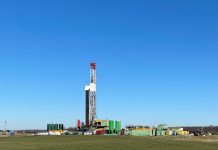
WOOSTER, Ohio — The decision over whether to allow a 10 million gallon waste and biosolids lagoon to be built north of Wooster is still being reviewed by the Ohio Environmental Protection Agency.
Known as the Wiles Lagoon, the project drew public comments and testimony from more than 75 individuals following an April 17 public hearing, according to a spokesperson with the state agency.
The developer, Buckeye Biogas, is a subsidiary of the Quasar Energy Group. The company wants to install the lagoon to store treated biosolids after they leave Quasar’s anaerobic digester located on the Ohio Agricultural Research and Development Center property in Wooster.
The material is high in organic matter, and would later be applied as a fertilizer to EPA-authorized acreage within the county.
“Ohio EPA continues reviewing the company’s application,” according to a statement by the EPA. “A decision of whether to issue a permit will be made when Ohio EPA has thoroughly reviewed the information about the project. Staff also continues working to respond to public comments received about the permit application.”
Public comment
Written comments were due to the EPA by April 24. The comments and responses will be made available when a decision on the project is made.
The project concerned some Canaan Township residents, who feared the lagoon would lead to environmental damage and decrease property values. They cited past projects by Quasar and the company’s history of violations as reason to be concerned.
The company says it is abiding within the law and providing a valuable source of fertilizer for area farmers. The federal and state EPA support biosolids being applied to farm fields, when all requirements are met.
Quasar said it intends to truck municipal waste in from a 75-mile radius, before it reaches the digester, and lastly, the lagoon.
Divided issue
The Wayne County Farm Bureau sent out a letter this spring, saying the board has spent many hours gathering information and concluded that member perception is “extremely mixed.”
The organization concluded, “Wayne County Farm Bureau policy supports the right of landowners to make use of their property for agricultural production, including uses that support production. Equally important, our policy expects all projects to comply with the law and legal requirements as set forth by any state regulation.”
Related coverage:
Related Quasar-Wiles Lagoon stories:
Wayne County residents share disdain for lagoon
April 18, 2018
Ohio EPA to hold hearing on biosolids lagoon
Wednesday, April 11, 2018
What are biosolids and are they safe?
Tuesday, March 20, 2018
Wayne County residents oppose waste lagoon
Thursday, March 15, 2018
Wiles lagoon stirs debate in Wayne County
Thursday, March 1, 2018
Ohio State’s anaerobic digestion technology now being commercialized
Thursday, February 16, 2012
Quasar gets $1 million grant for anaerobic digester project at impaired Ohio lake
Saturday, August 27, 2011
OARDC, Quasar partner for newest digester
Tuesday, December 15, 2009










Sewer sludge aka biosolids is NOT just human excrement – it is a concentration of all domestic and industrial pollutants that go down drains and sewers. It has some good stuff in it, which plants can use, but a huge load of thousands of other contaminants. Please read what independent scientists have to say on this issue –
Dr. Caroline Snyder – “Land-applied municipal sewage sludge (biosolids) is a highly complex and unpredictable mixture of biological and chemical pollutants. Biosolids generated in our large industrialized urban centers is very likely the most pollutant- rich waste mixture of the 21st century.”
Dr. Richard Honour – “”Few in any governments appreciate that nearly all chronic diseases are caused by long-term exposure to low levels of environmental contaminants and pollutants. We should be trying to minimize this exposure, not amplifying it. It is time to end land disposal of Toxic Sewer sludge, and look at cleaner, greener alternatives – gasification / pyrolysis.”
Let’s get on the right side of history, and use this waste resource to make energy. It is time to stop covering Mother Earth with our cities’ toxic sewage.
Prominent Scientists and Universities outline the Dangers of Biosolids –
Canadian Scientists – http://bit.ly/1sb2qOP
UK Scientists- Aberdeen / Glasgow Universities – http://www.wte-ltd.co.uk/sewage_sludge_biosolids.html
Cornell – http://cwmi.css.cornell.edu/case.pdf
http://nwtoxiccommunities.org/links/biosolids-and-sludges
See this link on regulatory failures and risks – https://bioscienceresource.org/sewage-sludge-biosolids-land-application-health-risks-and-regulation-2/
Overview of the issues – http://bit.ly/2kehQlP by Dr. Thomas Maler
Scientific American – https://www.scientificamerican.com/article/drugs-chemicals-seep-deep-into-soil-from-sewage-sludge/
https://www.theinvestigativefund.org/investigation/2013/10/23/sewage-waste-lands/
https://www.indyweek.com/indyweek/a-free-fertilizer-for-farmers-sludge-can-pose-health-and-environmental-risks/Content?oid=1562962